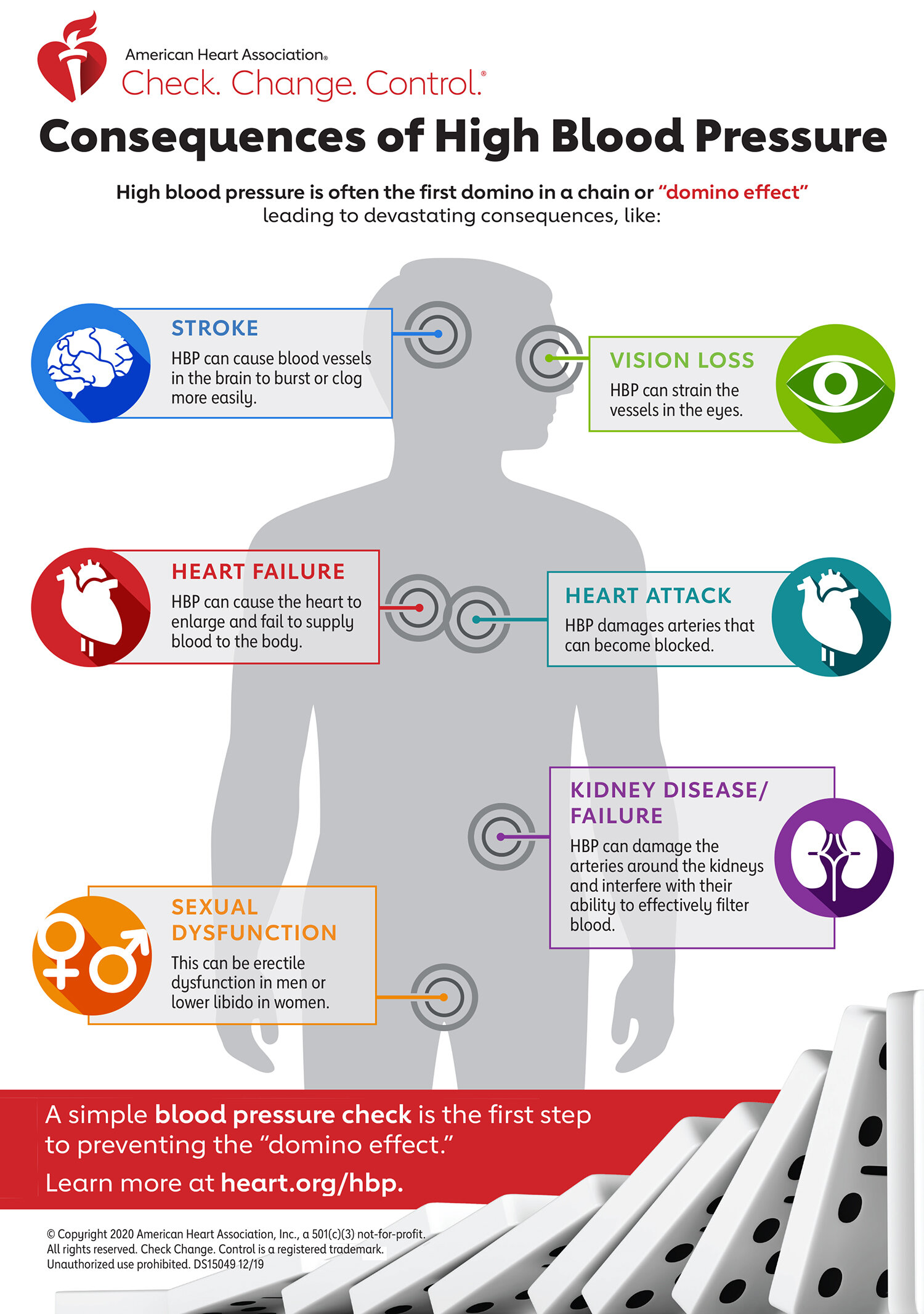High Blood Pressure (Hypertension) Resources
High blood pressure threatens your health and quality of life. We have put together a list of resources and links to help you understand more about hypertension. Always remember, if you have questions, we are here to answer them. Just give us a call! 1-888-711-3785 or call your nearest clinic.
Symptoms, Causes, Risk Factors, Complications
(Mayo Clinic):
SYMPTOMS: A few people with high blood pressure may have headaches, shortness of breath or nosebleeds, but these signs and symptoms aren't specific and usually don't occur until high blood pressure has reached a severe or life-threatening stage.
CAUSES FOR SECONDARY HYPERTENSION: Some people have high blood pressure caused by an underlying condition. This type of high blood pressure, called secondary hypertension, tends to appear suddenly and cause higher blood pressure than does primary hypertension. Various conditions and medications can lead to secondary hypertension, including:
Obstructive sleep apnea
Kidney disease
Adrenal gland tumors
Thyroid problems
Certain defects you're born with (congenital) in blood vessels
Certain medications, such as birth control pills, cold remedies, decongestants, over-the-counter pain relievers and some prescription drugs
Illegal drugs, such as cocaine and amphetamines
RISK FACTORS:
Age. The risk of high blood pressure increases as you age. Until about age 64, high blood pressure is more common in men. Women are more likely to develop high blood pressure after age 65.
Race. High blood pressure is particularly common among people of African heritage, often developing at an earlier age than it does in whites. Serious complications, such as stroke, heart attack and kidney failure, also are more common in people of African heritage.
Family history. High blood pressure tends to run in families.
Being overweight or obese. The more you weigh, the more blood you need to supply oxygen and nutrients to your tissues. As the amount of blood blow through your blood vessels increases, so does the pressure on your artery walls.
Not being physically active. People who are inactive tend to have higher heart rates. The higher your heart rate, the harder your heart must work with each contraction and the stronger the force on your arteries. Lack of physical activity also increases the risk of being overweight.
Using tobacco. Not only does smoking or chewing tobacco immediately raise your blood pressure temporarily, but the chemicals in tobacco can damage the lining of your artery walls. This can cause your arteries to narrow and increase your risk of heart disease. Secondhand smoke also can increase your heart disease risk.
Too much salt (sodium) in your diet. Too much sodium in your diet can cause your body to retain fluid, which increases blood pressure.
Too little potassium in your diet. Potassium helps balance the amount of sodium in your cells. A proper balance of potassium is critical for good heart health. If you don't get enough potassium in your diet, or you lose too much potassium due to dehydration or other health conditions, sodium can build up in your blood.
Drinking too much alcohol. Over time, heavy drinking can damage your heart. Having more than one drink a day for women and more than two drinks a day for men may affect your blood pressure. One drink equals 12 ounces of beer, 5 ounces of wine or 1.5 ounces of 80-proof liquor.
Stress. High levels of stress can lead to a temporary increase in blood pressure. Stress-related habits such as eating more, using tobacco or drinking alcohol can lead to further increases in blood pressure.
Certain chronic conditions. Certain chronic conditions also may increase your risk of high blood pressure, including kidney disease, diabetes and sleep apnea.
How can you help fix high blood pressure? Make a few lifestyle changes! (American Heart Association)
In many cases this will be your doctor’s first recommendation, likely in one of these areas:
Maintain a healthy weight. Strive for a body mass index (BMI) between 18.5 and 24.9.
Eat healthier. Eat lots of fruit, veggies and low-fat dairy, and less saturated and total fat. See below for more info on the DASH Diet.
Reduce sodium. Ideally, stay under 1,500 mg a day, but aim for at least a 1,000 mg per day reduction.
Get active. Aim for at least 90 to 150 minutes of aerobic and/or dynamic resistance exercise per week and/or three sessions of isometric resistance exercises per week.
Limit alcohol. Drink no more than 1-2 drinks a day. (One for most women, two for most men.)
By adopting a heart-healthy lifestyle, you can:
Reduce high blood pressure.
Prevent or delay the development of high blood pressure.
Enhance the effectiveness of blood pressure medications.
Lower your risk of heart attack, stroke, heart failure, kidney damage, vision loss and sexual dysfunction.
More links and information:
HIGH BLOOD PRESSURE CAUSES AND SYMPTOMS
DASH (DIETARY APPROACHES TO STOP HYPERTENSION) DIET
DASH EATING PLAN BENEFITS AND MORE!
BLOOD PRESSURE FACT SHEETS TO DOWNLOAD
(includes info in Spanish and English)
Healthy and unhealthy blood pressure ranges from the American Heart Association:
For assistance, or to schedule an appointment call 1-888-711-3785 or call your nearest clinic.



